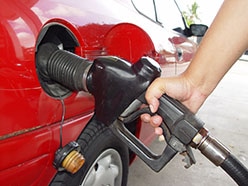Jun 23 2016
Petrol-powered vehicles are predicted to dominate the Australian car market in the year 2030 despite the growing concern of carbon emissions and its impact on the environment, a QUT-led study has found.
 Experts have predicted petrol powered vehicles will dominate the Australian car market in the year 2030.(Credit- QUEENSLAND UNIVERSITY OF TECHNOLOGY)
Experts have predicted petrol powered vehicles will dominate the Australian car market in the year 2030.(Credit- QUEENSLAND UNIVERSITY OF TECHNOLOGY)
QUT researchers investigating the future of vehicles and mobility in the Asia-Pacific region have surveyed academics, industry leaders, and government representatives throughout Australia, Indonesia, Malaysia, and Thailand to find out what vehicle options they forecast will exist 15 years from now.
Lead researcher Associate Professor Robert Perrons, from QUT's Institute for Future Environments, said that Australian experts predicted petrol would continue to be the most popular fuel source in 2030 with a market share of 34.9 per cent, with hybrid vehicles coming in second.
"The big change will be the prevalence of hybrid vehicles, which experts forecast will increase from 3.8 per cent of the market share to 24.2 per cent," he said.
"Coming in third place will be battery power, which increases from 0.3 per cent of the market in 2016 to 15.9 per cent in 2030."
Professor Perrons said diesel was tipped to cede considerable market share to hybrid and battery-based technologies, dropping to 15.2 per cent of the market share in 2030.
"The increase in reliance on greener fuels is similarly reflected in the Asia-Pacific region with Thailand, Indonesia, and Malaysia also tipped to see a significant increase in hybrid-powered vehicles," he said.
"Diesel vehicles are predicted to maintain a dominant market share in Thailand in the next few years, but hybrid battery-based technologies are expected to make significant inroads into the local market by 2030.
Professor Perrons said that, as part of the study, experts were also asked to predict the future costs of different models of vehicles.
"Generally speaking, across the four countries there was consensus that hybrid vehicles would become more cost-effective, either reducing in price or not increasing as much as other vehicles that use petrol or diesel," he said.
"For example, by 2030 Australian experts strongly believe that the purchase price of most vehicles will remain relatively stable to today's prices among petrol, diesel, and LPG vehicle options.
"The exceptions are the battery, hybrid, and biofuel vehicles, which are expected to see a price decrease of between 11 and 25 per cent compared to 2016 prices."
"The other good news is that Australian experts predict that a rise in efficiency will be seen across all vehicle fuel types, most notably in the battery electric-powered vehicles, which are estimated to see efficiency gains of 51 per cent or more."
Jointly supported by the AutoCRC, the Malaysia Automotive Institute, and QUT, the goal of the project is to improve the collective understanding of changes unfolding in the vehicle and mobility marketplace throughout the Asia-Pacific region, and to interpret what they mean for the future of transportation in that part of the world.